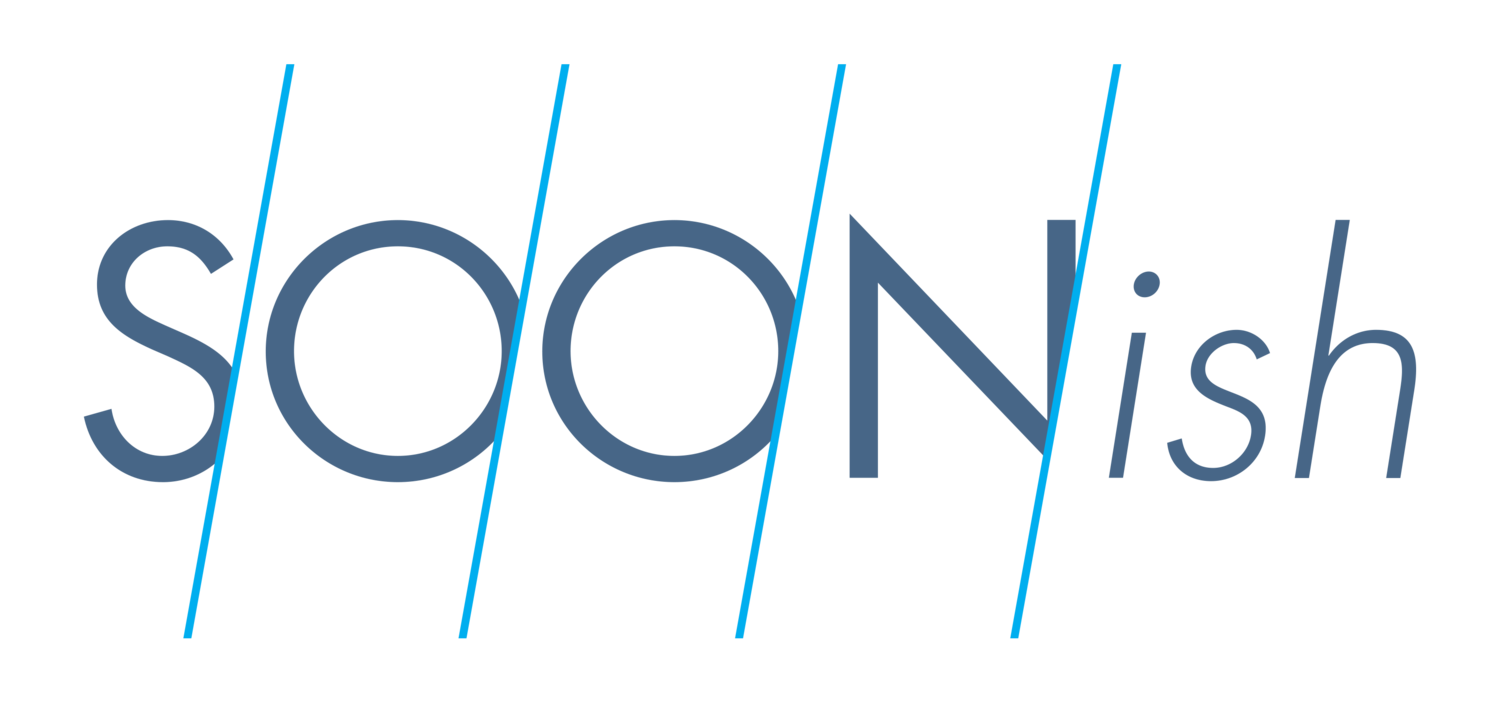Introducing the First Soonish Soundtrack Album, from Titlecard Music
/It's been a privilege and an education to work with the composer/producer team of Joel Roston and Andrew Willis of Titlecard Music and Sound on this year's Soonish episodes. And now I'm thrilled to announce that Titlecard's original score from Episode 2.10, Making Music with Machines, is available for purchase at Bandcamp as a standalone album. You can find it here.
Obtaining "pod-safe" music to set a mood, reinforce an emotional turning point, or help move a narrative along is a vexing challenge for independent podcast producers. For obvious legal reasons, it's important to have the rights to all of the music that goes into a podcast. Before February 2018, most episodes of Soonish incorporated background music from a variety of sources, such as Podington Bear's Sound of Picture library, Tim Beek, Lee Rosevere's Music for Podcasts series, and favorite composers on the Free Music Archive.
On the plus side, these tunes were affordable. All of them were obtained under inexpensive podcast-only licenses or free Creative Commons licenses. One the minus side, there aren't that many really great tracks in the music-for-podcasts world, so the best ones tend to get used over and over. (There's a reason you hear so much marimba music in podcasts!) Also, when you use eight different pieces from three or four different composers in a 40-minute podcast, there's little or no thematic continuity between the pieces. Each track may be right for its spot in the narrative, but as a whole they don't cohere.
Conversations with Joel and Andrew over the last year have helped me realize how important, and how achievable, that kind of coherence really is. They've worked for years on music for documentaries, commercials, and other projects, so they know a thing or two about how music can help to tell a story. Starting with Episode 2.07, The Future Is Clear, I worked with them to find tracks from the existing Titlecard library that better illustrated the stories I was trying to tell at Soonish. They'd listen to a draft episode and send me some possible tracks. I'd pick the right ones, and they'd modify them to fit the episode better and to help them fit with each other. For example, they'd sometimes change change the tracks' instrumentation or key signatures.
The latest episode is about the ways software is changing the way music gets created, and it happens to feature Joel and Andrew as guests, talking about the array of software and tools available to today's commercial composers. So when Joel suggested going to the next level and writing an original score, it made total sense.
For one thing, it made the whole project a bit "meta" in a way that appealed to me. One of the points Joel and Andrew make in the script is that a lot of movies, TV shows, and podcasts these days include featureless "low drone"-style background music that provides texture or mood but not much else. Joel says he often tries to convince directors that music with melodies (and not just texture) can bolster a narrative and help tie things together.
And that's exactly what he demonstrated in the score for the episode. It's all built around a 12-note melody (13 notes, if you count the return to the tonic) that reappears in many forms and moods throughout the episode's 27-minute score, even including a fugue-like section to go with the episode's segment on canon writing.
By the way, 27 minutes is a hell of a lot of music for a 40-minute episode! So much that it makes a great album all by itself. I love what Titlecard came up with for this episode, and I hope you'll buy and listen to the whole album. I still have Joel's versatile melody in my head. And now you can hear it too, without all of my silly words getting in the way! Get the album on Bandcamp now for $7 or more.



